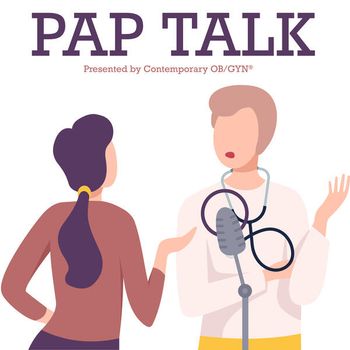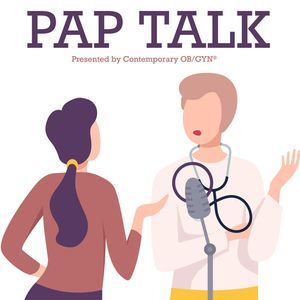Articles by Gloria Bachmann, MD, MSc

In this episode of Pap Talk, Gloria Bachmann, MD, MSc, breaks down what it means to be a health care provider for incarcerated individuals, and explores the specific challenges women and their providers face during and after incarceration. Joined by sexual health expert Michael Krychman, MD, Bachmann also discusses trauma-informed care and how providers can get informed.

Subjective and Objective Outcomes of Botulinum Toxin Type A Treatment in Vestibulodynia
ByCandace Brown, MSN, PharmD,Howard I. Glazer, PhD,Val Vogt, MD,Daniel Menkes, MD,Gloria Bachmann, MD, MSc,Candace Brown, MSN, PharmD,Howard I. Glazer, PhD,Val Vogt, MD,Daniel Menkes, MD,Gloria Bachmann, MD, MSc,Candace Brown, MSN, PharmD,Howard I. Glazer, PhD,Val Vogt, MD,Daniel Menkes, MD,Gloria Bachmann, MD, MSc,Candace Brown, MSN, PharmD,Howard I. Glazer, PhD,Val Vogt, MD,Daniel Menkes, MD,Gloria Bachmann, MD, MSc Botulinum toxin type A may be effective in reducing coital pain in vestibulodynia with levator ani tenderness, but has little effect on vestibular allodynia.

The Web-enabled Glazer Surface Electromyographic Protocol
ByCandace Brown, MSN, PharmD,Howard I. Glazer, PhD,Val Vogt, MD,Daniel Menkes, MD,Gloria Bachmann, MD, MSc The Web-enabled Glazer Surface Electromyographic Protocol for the Remote, Real-time Assessment and Rehabilitation of Pelvic Floor Dysfunction in Vulvar Vestibulitis Syndrome: A Case Report

Surface Electromyographic Biofeedback of Pelvic Floor Musculature
ByCandace Brown, MSN, PharmD,Howard I. Glazer, PhD,Val Vogt, MD,Daniel Menkes, MD,Gloria Bachmann, MD, MSc Biofeedback is a self regulation training technique derived from well established principles of human learning. Biofeedback is a technique, not a stand alone treatment, which is one component of a behavioral training program to facilitate acquisition of pelvic floor muscle control and other continence skills.

Vulvar Vestibulitis Syndrome with Electromyographic Biofeedback of Pelvic Floor Musculature
ByCandace Brown, MSN, PharmD,Howard I. Glazer, PhD,Val Vogt, MD,Daniel Menkes, MD,Gloria Bachmann, MD, MSc,Howard I. Glazer, PhD,Gae Rodke, MD,Charles Swencionis, PhD,Howard I. Glazer, PhD,Gae Rodke, MD,Charles Swencionis, PhD,Ronny Hertz, DDS, MD,Alexander W. Young, MD,Ronny Hertz, DDS, MD,Alexander W. Young, MD Thirty-three women diagnosed as suffering from vulvar vestibulitis syndrome, marked by a significant history of long-term moderate to severe chronic introital dyspareunia and tenderness of the vulvar vestibule, were selected for treatment.


